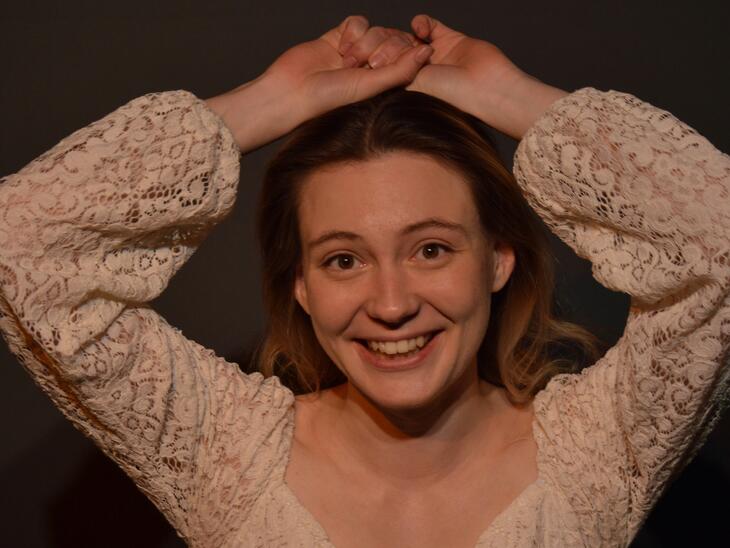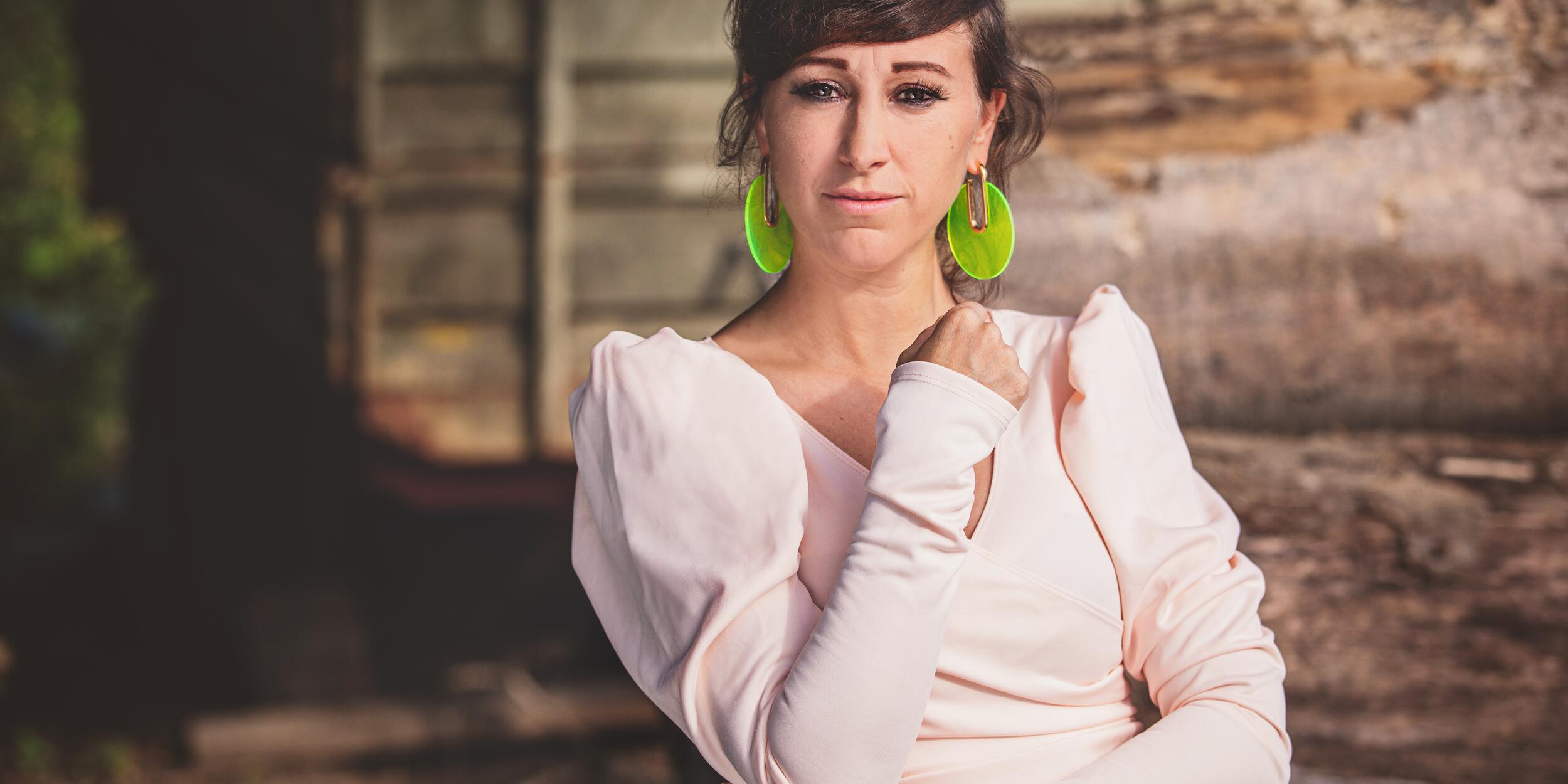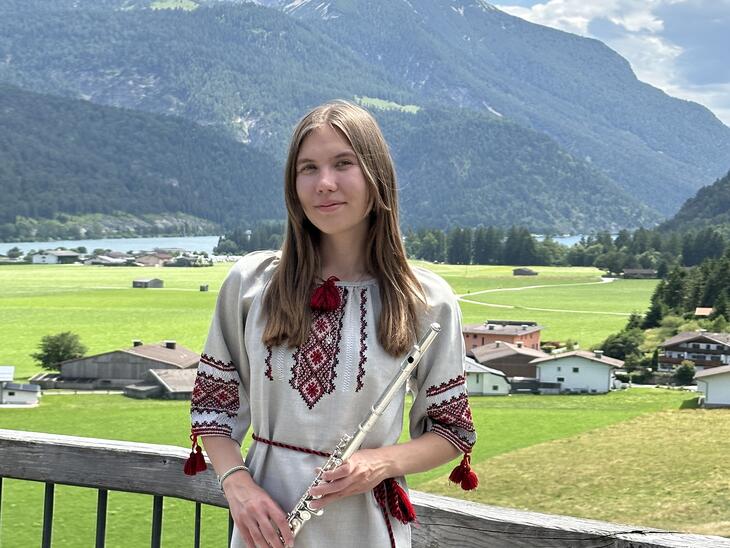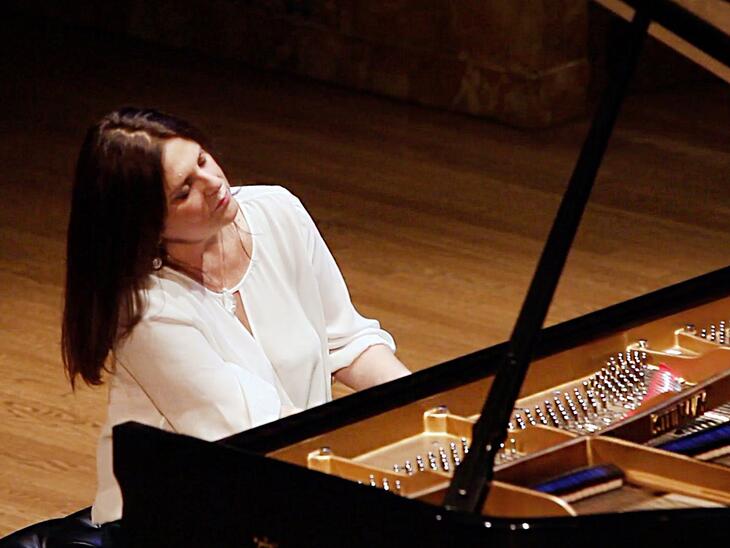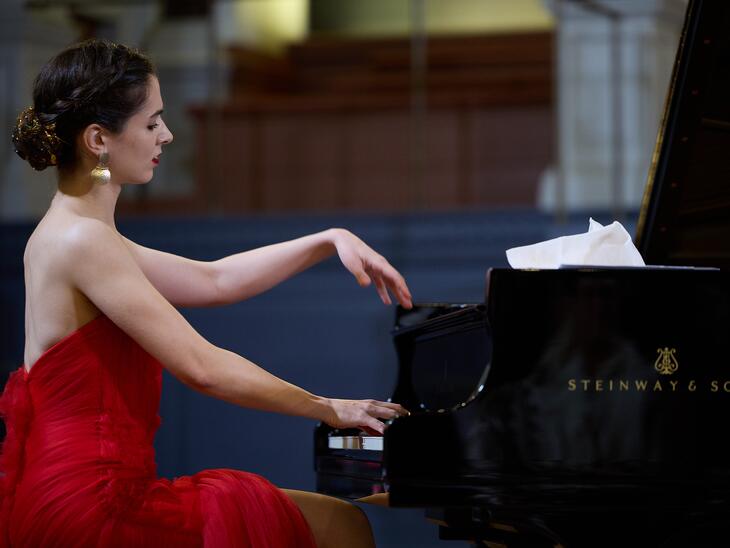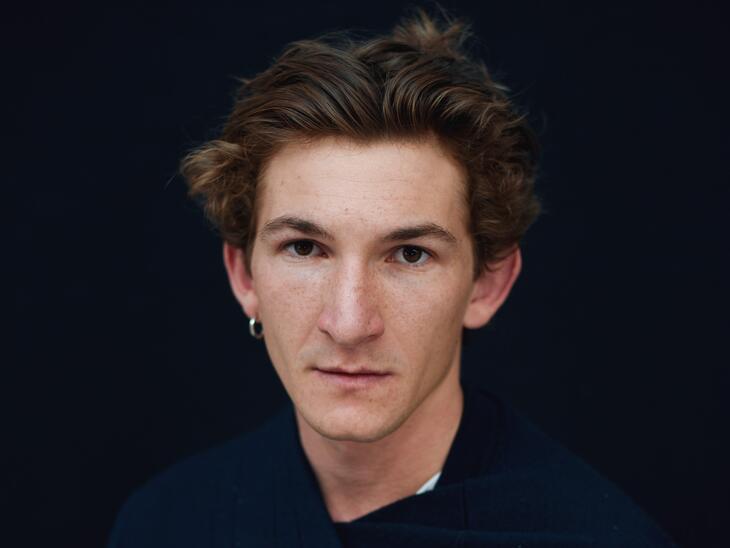What do best lists and award nominations mean for young writers?
Basically, it's a potential prospect for further writing project funding. What does a best list mean? Maybe that one is noticed by the public and that one's writing is recognised in the best case.
What role do grants, literary festivals, prizes and media play for young writers?
Without scholarships and project funding, without literary prizes etc., it would not be possible for most authors to finance their writing lives. Book sales alone are only enough for a very small number of authors to cover their living costs. It's usually a combination of book sales, readings and grants, and you often have to be behind it year after year.
What does your everyday life look like? How can we imagine your work?
As soon as my child leaves the house, I start writing - usually between seven and half past seven - and make use of the sparse hours when I am alone at home. The morning hours are best for me personally, because I'm still halfway sane then. The themes emerge gradually, a scene comes to mind or I start from memories, images and dream sequences. How do you find a publisher? I simply sent twenty pages and a synopsis to the biggest publishers and ticked off a list. The second or third time, I got a positive response from my current publisher Jung & Jung. That was the ticket to the public. If you want to go to an even bigger publishing house like Rowohlt, Suhrkamp or Hanser, you need an agent - I was told. If you want to write seriously and make a living from it, you have to be robust and not get tired of taking a lot of punches. I've taken defeats time and again, but I've stuck with it. And then you have to be lucky that the publisher has a good editor like mine, who can be very exhausting, but who also brings out the best in you.
What is particularly important to you in your work?
Authenticity, perhaps. Not everything has to be true, but the eye has to be sharpened on the truth.
You have published three books in five years. Will it continue at this pace?
I hope so, on the other hand the time pressure is also very exhausting, sometimes I would like to take more time.
When did you start writing? What is your motivation and inspiration?
Actually, I already liked writing as a child, my primary school teacher also encouraged it a lot. In the third or fourth grade I "published" my own magazine, which my classmates could buy, called "Polo", like our dog at the time. The motivation is on the one hand my survival instinct, on the other hand my flight instinct. I like to escape into other realities and I need to write; one day of good formulation changes my well-being dramatically.
You studied art education, psychology, philosophy and German? What was your goal back then? Did you always want to be an artist and writer?
I studied what I had always been interested in, only I approached it very naively. I thought that all freelance writers gathered together in German studies and exchanged their texts, but there is hardly any other field of study that makes writing so unpleasant, and that's why I dropped out of my studies after one year or changed my subject. At that time I probably already had this wish to become an artist or author, but I probably didn't dare to dream of it. It was only after my studies and after a few years in the teaching profession, about a year after my son was born, that I started writing again and finished my first book within two months. It's only since my child that I've been pursuing everything seriously, I think.
Are you still active as a visual artist?
Hardly at all. There is no time left for that besides children and texts.
What conditions do artists and authors need to pursue their work?
On the one hand, I'm very happy that there are work scholarships, project scholarships, one-year scholarships, etc., but on the other hand, it's very tedious to have to apply for them every year, to worry whether you'll get funded for another year, being self-employed is often stressful because you never know how long your money will last. An unconditional basic income would be desirable. I always work with great seriousness and never rest on any funding, I can't remember a single day in the last nine years when I really sat back and rested or hit the ground running.
What would you like to pass on to young people in training? What has been helpful? What less so?
Let go of what makes you sick. I once enjoyed working as a grammar school teacher, especially since the human being, in my case the children and young people, were the focus, the interpersonal was always important to me and I saw myself as a teacher more as a guiding figure, model, support and motor for developing one's own strengths. Unfortunately, however, I am no longer at all comfortable with our current education system. Competence orientation and bureaucracy have long since overgrown what it means to be human, and it would disgust me if I had to teach the pupils this increasing mass of material in times like these, when it feels like it's a matter of sheer survival. I have always been and still am pro-student and pro-human, and I find the current state of our educational institutions unacceptable.
During my studies, there were always lectures and proseminars that I felt were an absolute waste of time, but on the other hand, there were also some people who challenged and encouraged me, e.g. my former painting professor Dieter Kleinpeter, Dr. Helga Buchschartner, who was able to give me a basis in art historical knowledge, or Dr. Herwig Gottwald in German Studies, who encouraged me in my writing. Today I am very grateful for these broadened horizons.
